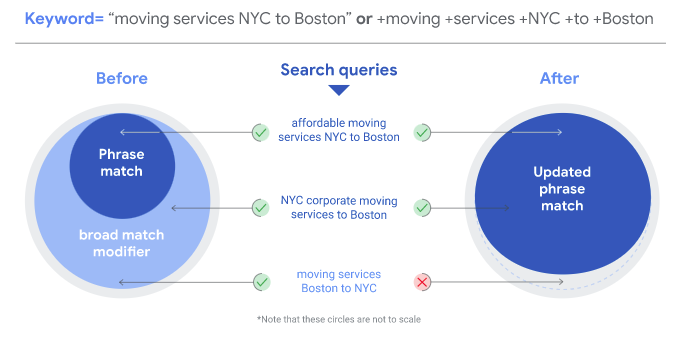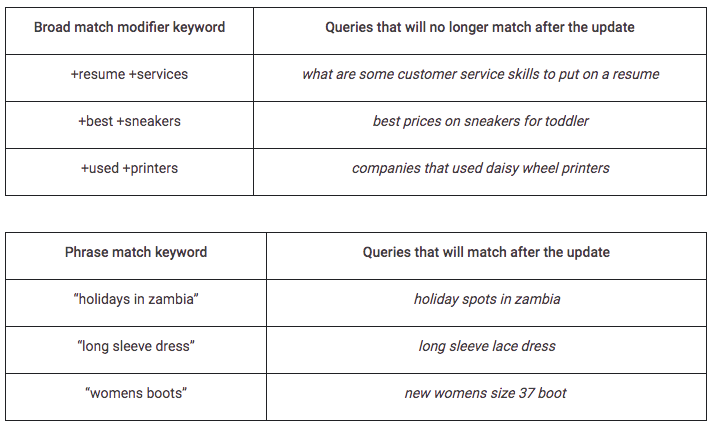The evolution of paid search continues with Google’s announcement that phrase match is now incorporating the behaviors of broad match modifier (BMM), signifying the end of support for broad match modifier. The announcement states that this simplifies keyword portfolios while helping to reach more relevant customers.
How Will Phrase Match Change?
The updated phrase match behavior will have the continued control of phrase match, but will expand its reach with broad match modifier signals. Your ads could be triggered on searches that include the implied meaning of your keywords.
Traditionally with phrase match, your ad could be triggered for searches that included your exact keyword with additional words before or after them. (Google loosened the rules in 2019 with same-meaning close variants being served for both phrase and broad match modifier. They noted that this change was made to reach more customers without the need for a longer keyword list, thereby reducing account management time.)

How Will Broad Match Modifier Change?
Existing BMM keywords will now work using the updated phrase matching behavior. All performance history will be preserved, and there is no real benefit to converting your current BMM keywords. If you choose to convert these to a phrase match type, the BMM performance data will not carry over to the new phrase instances. You can still create broad match modifier keywords, but it’s recommended to create phrase keywords going forward.

Transition Timeline Notes
- Combining broad and broad match modifier will no longer apply as in the past; the +operator will be applied to all of the keywords, and will behave as phrase match. (Using a keyword such as +red shoes will behave like “red shoes.”)
- You will no longer be able to create broad match modifier keywords as of July 2021. Existing broad match modifier keywords will continue serving using the updated phrase match behavior.
- You will still be able to edit BMM keyword bids as of July 2021, but an edit to the keyword itself will result in the match type being updated to phrase.
How Will This Impact Campaigns?
Traffic fluctuations are imminent and it will be important to monitor your accounts during the transition. Budgets may need to be adjusted to account for a shift in traffic volume.
Expect to see incremental increases in phrase match keyword traffic due to the additional queries that ads will be served for. An example of this is “vacation in utah” will now be matched to the query “vacation spots in utah.” Previous matching behavior would have only served the latter for broad match modifier.
If you are predominantly using broad match modifier, you may expect to see slight decreases in traffic. Much of the loss will be where the modifier was only applied to part of the keyword (+red shoes), but keyword order will now be more of a consideration when it’s important to the meaning of the keyword.
Conclusion
Machine learning continues to evolve, and with this, Google Ads has removed the control that we once had over keyword match types. The promise of better automation in combination with Google’s “smart” strategies allows us more time for creativity, but be sure that your campaigns are using automation that best suits your goals and check in on them. There is never a reason to set it and forget it!
If you’d like help in getting your ads in front of the right audience, give Hall a call — we’re here to help!





